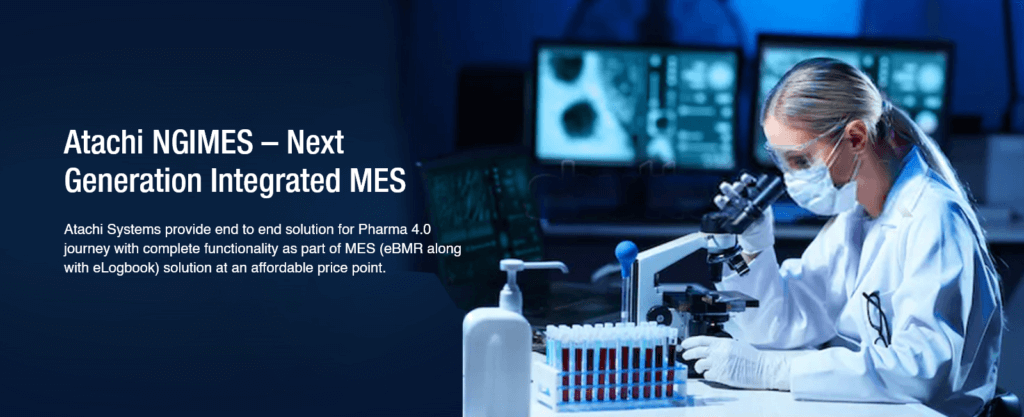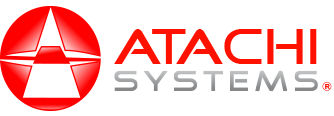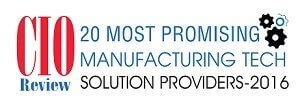Category: Uncategorized

3 Nov Preparing for AI in Manufacturing: Get Your Data House in Order
The changeover took 3 hours instead of 45 minutes, and nobody knows why. Can AI help? Not yet. AI cannot fix broken data, and it cannot analyze data that was never captured. Real wins come from capturing the right signals, making them consistent, and connecting them with context.
The Digitization Imperative
You’ve heard the buzz: manufacturers using AI are pulling ahead while others fall behind. McKinsey reports that digital leaders in manufacturing see 30-50% reductions in machine downtime and 10-20% increases in throughput. But here’s what the consultants won’t tell you: these wins don’t come from AI alone. They come from finally capturing and connecting the data that’s been invisible on your plant floor for years.
The gap between leaders and laggards is widening. Not because of AI magic, but because leaders digitized their operations first. They can see what’s happening, when it’s happening, and why it’s happening. Everyone else is still guessing.
Can AI Fix Your Data Problems?
Short answer: no.
AI can find patterns, but it cannot repair systemic problems like:
- Inconsistent naming (is it “changeover,” “setup,” or “product change”?)
- Missing links between systems (which tool was running when quality spiked?)
- Unsynchronized clocks (did the defect happen before or after the parameter change?)
- Signals that were never captured (nobody tracks individual changeover tasks)
For example, if you don’t track changeover tasks, tool IDs, or first-piece checks, no model can analyze or optimize them. At best, you get superficial correlations. At worst, you automate bad decisions.
The 6 Cs: What Your Data Must Have Before AI Can Help
AI needs 6 foundational elements to deliver value:
- Coverage: The signals exist for the process you want to improve. Examples: machine states, setup times, changeover tasks, rejects, first-piece checks, maintenance work.
- Consistency: Names, codes, and units mean the same thing everywhere. “Changeover” is not split across three different abbreviations.
- Context: Events link across systems and time. A reject on Line 2 ties to product, lot, tooling, shift, and the exact recipe or program version.
- Currency: Data reflects the current state. No working with yesterday’s numbers when today’s are available.
- Cadence: Data flows from event to system fast enough to act
- Credibility: People trust the numbers because they are complete, validated, and auditable.
What Goes Wrong Without These
You may be able to run your plant without these all at a high level of maturity but there are some downsides:
- Machine blindness: You know changeover takes 3 hours but not why. After adding task-level tracking, one plant discovered 40% was waiting for QC approval … not actual setup work.
- Tower of Babel: Three shifts log the same problem as “material issue,” “stock-out,” and “waiting for parts.” Management spends months fixing the wrong bottleneck until someone standardizes the codes.
- Mystery failures: Scrap doubles every Tuesday afternoon. Six months of head-scratching until someone finally connects it to Monday’s raw material delivery from a specific supplier.
- Yesterday’s news: Line switched to Product B two hours ago, but inventory system still allocating materials for Product A. Expedites and chaos ensue.
- After-the-fact alerts: Operator notices quality drift at 2 PM. Alert hits the engineer’s screen at 2:20 PM. By then, 300 units are scrap.
- Fantasy metrics: Dashboard shows 92% OEE. Operators know it’s closer to 70% because breaks aren’t logged and micro-stops under 3 minutes don’t count. Management celebrates the “good performance.”
Changeover Could Be a Great Starting Point
Changeover is the end-to-end set of tasks to switch products: de-stock, clean or sanitize, swap tooling, load recipe or program, first-piece check, ramp. While flow is the smooth movement of work with minimal stops, microstops, and rework across the line.
Why start here? Changeovers are frequent and measurable, and they force good data hygiene. Timestamp each task, standardize reason codes, and connect events to product, lot, line, shift, and version. You usually unlock net capacity quickly while building the same data foundation that later powers quality and maintenance use cases.
A Practical Digital Maturity Ladder
Every organization is at a different maturity level, if you find yourself at Level 0 or Level 1 it would be a good idea to evaluate if there are some digitization options that could get you started in the near future.
Level 0 – Paper: Whiteboards, tribal knowledge, spreadsheets
Level 1 – Digital Islands: Systems exist but don’t connect
Level 2 – Connected Operations: MES ties everything together with context
Level 3 – Trusted Intelligence: Governed data, validated entries, role-based views
Level 4 – Optimizing System: Metrics trigger actions, results feed improvements
Most plants can reach Level 2 in 90 days with focused scope.
Where AI and analytics pay off first
- Changeover time reduction: Identify the longest tasks, sequence them better, pre-stage materials and tools, and standardize best practice. Small savings per change add up to real capacity.
- Downtime and microstop patterns: Cluster similar stops to target the true top loss. Many plants win here before moving to heavier predictive work.
- Quality drift alerts: Start simple with rule-based thresholds tied to process context. Move to predictive models once false alarms are low.
- Maintenance prioritization: Combine run conditions, fault history, and criticality to rank what to fix next.
- Schedule optimization: Use actual setup times and changeover data to plan sequences that minimize total loss.
Metrics That Show You’re Ready
- Being able to quickly track these metrics isn’t optional, it’s the foundation for unlocking AI value.
- Critical equipment with state tracking: >90%
- Downtime/rejects with standard codes: >95%
- Events linked to full context: >80%
- Event to dashboard time: <5 minutes
- Data quality score: >85%
- Changeover variance by product: <10%
How Atachi Helps
Atachi specializes in rapidly connecting your manufacturing data islands. We typically:
- First 30 days: Connect machine states and operator inputs with full context, standardize code lists
- By 90 days: Link MES, QMS, CMMS, and ERP across your systems
- By Month 4: Deploy role-based dashboards operators actually trust
Once your data foundation is solid, AI becomes a plug-and-play addition rather than a science project.
Take Action Now
You do not need millions or a two-year roadmap. Start on one line, prove value in 90 days, and build momentum.
AI rewards plants that measure the right things the same way every day. Build coverage, consistency, context, currency, cadence, and credibility. Start with changeovers and flow, then expand with confidence.
When will you start?
10 Jul Gurmeet Singh Joined Atachi Systems

Gurmeet Singh has made a significant contribution to the pharmaceutical industry. He comes with over 30 years of unique, innovative, and multifaceted experience in the industry often hailed as straight-jacketed with no great change in operating practices. He established an enviable network of specialists spanning the Americas, Europe, and the versatile Indian market. He has contributed significantly to the competitive advantage of Ranbaxy, Wockhardt, Orchid Pharma, Midas Pharma GmbH, Max India, and the Drugs for Neglected Diseases initiative.
His expertise lies in forming Strategic Alliances, Global Sourcing, Procurement, Supply Chain, and Logistics. His skill in negotiating global supply contracts, Contract Manufacturing, Sales, and Marketing of APIs have given all the organizations he has worked for significant leverage to strengthen their position in the operating markets of India, Latam, the US, Canada, Europe, and ANZ.
Before Atachi systems, Mr. Singh was with the Motherson Group for its health-tech arm in providing IT system solutions for operational excellence and productivity enhancement with a focus on the Pharmaceutical industry. He has good insights into setting up operations in this domain. He established Midas Pharma GmbH India office, where he managed various business verticals and entered into successful collaborations for the organization.
He has also been a speaker at various UBM forums to deliver presentations on Pharma-related topics. He is a Post-Graduate in Management and holds a bachelor’s degree in Law.
27 May From Dock to Stock – MES Helps You To Save Time And Effort And Avoid The Risk.
Pharmaceutical companies are under pressure to achieve better control of their production processes and to increase transparency and traceability. This is where MES comes into play. Companies can now capture real-time data and make it available across multiple sites. By connecting equipment to information systems and operator interfaces, it is possible to regulate every aspect of production, while optimizing compliance.
MES integrates a number of the technologies deployed at the manufacturing operations management (MOM) level, including enterprise resource planning (ERP) systems, automation, and other components in the value chain.
All this is now recognized as best practice across the industry, which is evidenced by the fact that new manufacturing sites are launching with MES in place.
How Manufacturing Execution System (MES) software streamline production and one tool manufacturers can rely on to improve performance:
- With MES software, companies can streamline production to ensure that materials are used properly and waste is reduced.
- Not only does this create a more sustainable supply chain, but it can help reduce costs and labor.
- Businesses can also minimize risk for recalls, defects, or regulatory issues with MES software.
- Once a business gains confidence in its agile systems and can stay ahead of malfunctions, it can begin to standardize operations and maximize the use of machines with minimum material waste.
- In addition to properly allocating resources to reduce waste, MES drives business processes for multi-site manufacturers by standardizing workflows and procedures across locations.
- By maintaining consistent processes, both workflows and material needs can be standardized across all plants, reducing potential downtime.
- MES software can even help manufacturers comply with safety standards during the pandemic, such as adaptive shift scheduling and sensors that track which materials have had human contact.
- Complying with these regulations proactively reduces potential downtime from current and future health risks.
Pharmaceutical companiesthat have adopted MES are gaining a competitive advantage with
- improved quality,
- better traceability,
- maximized lean initiatives,
- flexible manufacturing processes,
- improved compliance,
- complete business process management and
- accurate, real-time reporting.
What you lose if you don’t implement MES:
Companies that do not adopt this technology risk losing a share of existing and new market opportunities. This is borne out by the fact that new pharmaceutical facilities are starting with an MES in place, that is, paperless manufacturing from day one.
- Most companies that still do not have an MES in place might not realize what they are losing each day when they are delaying MES deployment. They rather wait for others to start the project first and see the outcome of it.
- Without MES, a company is always vulnerable to face issues with data integrity, material mix-up, and product quality.
- Moreover, there is a risk of missing opportunities to grow and expand. No standardization is feasible without a proper system.
- Aside from all the aforementioned benefits, it is even more critical that companies will be losing the opportunity to drive their digital advancement. MES is the foundation that helps manufacturers pave their way towards Pharma 4.0 and drive digitization within their organization.
Although today’s MES solutions focus exclusively on the manufacture of drugs inside the facility, we can expect MES to provide the functionality to integrate patient-related information with the manufacturing environment.
Similar to the way clinical supplies are replenished when Interactive Voice Response (IVR) systems provide inventory consumption information back to the drug company, it’s logical to think that, in the near future, production runs will be triggered by the distributor’s warehouses or pharmacies themselves.
MES applications offer a highly agile architecture, meaning that they can merge seamlessly in a connected world and easily support the integration of information from a multitude of sources.
For those looking to harness the benefits of an MES system, they need to do so with a vision of what their business needs are, as well as a clear understanding of their individual manufacturing requirements. This will enable an MES solution to be designed that meets a manufacturer’s current needs, while also preparing them for the future.
Finding the best MES supplier for the pharmaceutical industry:
- Choosing an MES vendor is a complex process that requires expertise and hard work before making a decision. It is recommended to select a highly experienced vendor with an excellent track record of success.
- This ensures a fast and effective project delivery using best practices from top pharma and biotech companies.
- An MES system is a critical IT solution that needs to last for decades and when a company chooses to work with a given MES supplier, it enters a long-term strategic partnership.
- With the right MES, pharmaceutical and biotech manufacturers can reduce time, efforts, and risks and finally save costs – provided that the system meets the requirements of the pharmaceutical industry in terms of functions, usability, and compliance.
- To ensure this, it is essential that the MES provider understands the industry-specific products and shop-floor processes and also has the necessary experience to implement such systems successfully.
- One of the world’s leading Pharma MES suppliers is Atachi Systems, which offers a cloud-based premier MES for the modern manufacturing environment.
- Leveraging the power of the SAP HANA cloud platform, NGIMES offers an efficient way to implement paperless processes to collect data, track progress and manage documentation with minimal risk.
- Real-time quality monitoring and built-in statistical process control (SPC) help reduce defects for better yields. Atachi eLogbook ensures operational checks, maintenance services, equipment cleaning, calibration, quality checks, and training.
The goal of these technologies is to help industrial manufacturers manage their businesses with better intelligence and to make the manufacturing units more productive, cost- and energy-efficient, safe, and, most importantly, streamlined. Last but not least, when deciding to start an MES project, it is necessary to understand the benefits of all end-to-end manufacturing processes. Conducting a business benefits analysis can help identify the added values so that the investment for improving the efficiency of production processes will pay off.
23 Dec What does the Pharma Industry say about Atachi NGIMES?

The Manufacturing Systems (MES) for Pharmaceutical market report covers the key trends overseeing the industry growth across the regional contributors. It provides insights about the restraints as well as opportunities to assist in better decision making and execute further business expansion. The study also delves into the ever-changing competitive scenario by profiling the leading industry players. Furthermore, it covers the latest developments, comprising the COVID-19 pandemic, to help market participants identify the opportunities in this business sphere.
Major highlights from COVID-19 impact analysis:
- Worldwide COVID-19 status and its implications on the economy.
- Fluctuations in the supply and demand.
- Impact of COVID-19 pandemic on the growth matrix in the long run.
Regional outlook:
- Geographically, the Manufacturing Systems (MES) for Pharmaceutical market is bifurcated into North America, Europe, Asia-Pacific, South America, Middle East & Africa, South East Asia.
- An overview of the development of every regional market as well as their CAGR over the analysis period is stated in the report.
- Details pertaining to garnered sales and revenue amassed by each geography is mentioned.
Other highlights from the Manufacturing Systems (MES) for Pharmaceutical market report:
- Leading companies that formulate the competitive landscape of the Manufacturing Systems (MES) for Pharmaceutical market are General Electric Company, Pharma MES Berlin, Honeywell, ABB Ltd., Dassault SystA? mes, Rockwell Automation, Inc., Siemens AG, ATS Global, SAP SE, Emerson Electric Co., Lighthouse Systems, Atachi Systems, Werum It Solutions GmbH and Schneider Electric SE.
- Crucial details regarding the product portfolio, company profile, production patterns, and market remuneration are cited in the study.
- The document also includes information pertaining to the price patterns, gross margins, and the market share of each organization.
- The product terrain of the Manufacturing Systems (MES) for Pharmaceutical market is split into None.
- Revenue and the volume predictions of each product type are validated.
- Other details such as CAGR and market share of each product category over the forecast timeframe are enumerated as well.
- Elaborating on the application spectrum, the Manufacturing Systems (MES) for Pharmaceutical market is fragmented into General Electric Company, Pharma MES Berlin, Honeywell, ABB Ltd., Dassault SystA? mes, Rockwell Automation, Inc., Siemens AG, ATS Global, SAP SE, Emerson Electric Co., Lighthouse Systems, Atachi Systems, Werum It Solutions GmbH and Schneider Electric SE.
- The study assesses the market share for each application and estimates their CAGR during the forecast period.
- The report also elaborates on the competitive trends, along with all-inclusive analysis of the industry supply chain.
- Using SWOT analysis and Porter’s five forces analysis, the report aids in determining the feasibility of a new project.
- The Manufacturing Systems (MES) for Pharmaceutical market, based on the application scope of the various product offerings, is categorized into On-Premises, On-Demand and Hybrid.
- Information upholding the projected consumption value and consumption share of each application over the analysis timeline is presented in complete details.
- Market share captured by each application is also provided.
Competitive outlook:
- Leading organizations profiled in the Manufacturing Systems (MES) for Pharmaceutical market report include General Electric Company, Pharma MES Berlin, Honeywell, ABB Ltd., Dassault SystA? mes, Rockwell Automation, Inc., Siemens AG, ATS Global, SAP SE, Emerson Electric Co., Lighthouse Systems, Atachi Systems, Werum It Solutions GmbH and Schneider Electric SE.
- Basic company information and business summary of each company is listed.
- Financial attributes such as pricing model, total sale, revenue share, and gross margins of each contender are detailed in the report.
- Regions serviced and distribution channels leveraged by the leading players are extensively discussed.
Latest information pertaining to the market concentration ratio, key developments, mergers & acquisitions, and new entrants are compiled in the document.
This Manufacturing Systems (MES) for Pharmaceutical Market Research/analysis Report Contains Answers to Your Following Questions:
- Who are the global key players in this Manufacturing Systems (MES) for Pharmaceutical market? What’s their company profile, its product information, contact information?
- What was the global market status of the market? What was capacity, production value, cost and profit of the market?
- What are projections of the global industry considering capacity, production, and production value? What will be the estimation of cost and profit? What will be market share, supply, and consumption? What about imports and export?
- What is market chain analysis by upstream raw materials and downstream industry?
- What are the market dynamics of the market? What are the challenges and opportunities?
What should be entry strategies, countermeasures to economic impact, marketing channels for the industry?
Why to Select This Report:
- Complete analysis on market dynamics, market status and competitive Manufacturing Systems (MES) for Pharmaceutical view is offered.
- Forecast Global Manufacturing Systems (MES) for Pharmaceutical Industry trends will present the market drivers, constraints and growth opportunities.
- The five-year forecast view shows how the market is expected to grow in coming years.
- All vital Global Manufacturing Systems (MES) for Pharmaceutical Industry verticals are presented in this study like Product Type, Applications and Geographical Regions.
The research process begins with internal and external sources to obtain qualitative and quantitative information related to the Manufacturing Systems (MES) for Pharmaceutical market. It also provides an overview and forecast for the Manufacturing Systems (MES) for Pharmaceutical market based on all the segmentation provided for the global region. The predictions highlighted in the Manufacturing Systems (MES) for Pharmaceutical market share report have been derived using verified research procedures and assumptions. By doing so, the research report serves as a repository of analysis and information for every component of the Manufacturing Systems (MES) for Pharmaceutical market.
4 Jan 20 Most Promising Pharma and Life Solution Providers by CIO Review India
A distinguished panel comprising of CEOs, CIOs, CMOs, VCs, analysts and the CIO Review editorial board has selected top players from over a thousand companies. Select companies who made this privileged list were evaluated on their company’s offerings, core competency, news/press releases, client testimonials, milestones and other recognitions.
Atachi Software Systems is proud to be selected as one of the Pharma and Life Solution Providers by CIO Reveiw India. Atachi NGIMES provides the complete End-to-End solutions for the companies looking to digitize their pharma manufacturing enterprises in the line of Industry 4.0 for greater compliance with FDA regulations, cGMP practices and faster manufacturing insights.. For more information, please read the article by click on the logo below.
20 Dec Atachi Systems Named to Pharma Tech Outlook’s Top 10 Pharmaceutical Manufacturing Solution Providers 2016
| Valley Media Inc.44790, S. Grimmer Blvd,
#202 Fremont , CA – 94538 |
December 20, 2016
Atachi Systems Named to Pharma Tech Outlook’s Top 10 Pharmaceutical Manufacturing Solution Providers 2016
FREMONT, CA— Atachi Systems has been recognized as one of the Top 10 Pharmaceutical Manufacturing Solution Providers by Pharma Tech Outlook Magazine.
“We take pride in honoring Atachi Systems as one among the 10 companies that are specialized in providing Pharmaceutical Manufacturing solutions,” said Stacey Smith, Managing Editor of Pharma Tech Outlook.
Atachi Systems NGIMES a cloud based Manufacturing Execution Systems (MES), which is quick to deploy, cost efficient and highly scalable. This cloud-based MES dismisses the need for complex IT systems in fast-changing hardware and software life cycle management environments.
About Atachi Systems
Atachi Systems provides manufacturing companies with a seamless, cloud-based Manufacturing Execution System that reduces dependencies on infrastructure, lowers maintenance costs, and improves access to real-time visibility of shop-floor operations for engineers and managers at all levels. The company was founded in 2007 to streamline the IT services that enable discrete manufacturing companies to improve efficiency and grow profits. For more info, visit: www.atachisystems.com
About Pharma Tech Outlook
Published from Fremont, California, Pharma Tech Outlook is a print magazine that covers most important and latest developments in pharmaceutical industry. A panel of experts and members of Pharma Tech Outlook’s editorial board selected and finalized the “Top 10 Pharmaceutical Manufacturing Solution Providers 2016” and shortlisted the best vendors and consultants. For more info: www.pharmatechoutlook.com

